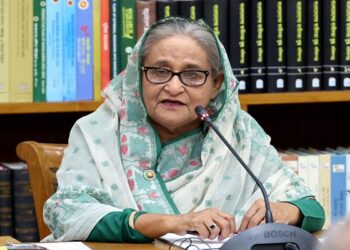Seattle has become the first city in the United States to officially ban discrimination based on caste, following the passing of an ordinance by city lawmakers on Tuesday, February 21st.
The legislation was proposed by Council member Kshama Sawant and added caste to the city’s existing anti-discrimination laws, after being voted through with a majority of 6-1.
In a tweet from her official Twitter handle, Sawant said,
“It’s official: our movement has WON a historic, first-in-the-nation ban on caste discrimination in Seattle! Now we need to build a movement to spread this victory around the country. (sic)”
– @cmkshama, Twitter.com
Sawant sponsored the ordinance to address a form of discrimination that she believes has been “invisible and unaddressed” for too long, affecting South Asian American and other immigrant working people in their workplaces, including the tech sector, in Seattle and across the US.
After the verdict, a video was posted on Twitter in which chants of ‘Jai Bhim’ could be heard.
The caste system in India was officially abolished in the late 1940s, but remnants of the social hierarchy still exist in some form today, with Dalits at the bottom. The Migration Policy Institute states that the US is home to 2.7 million Indian immigrants and 5.4 million people with roots across South Asia.
A 2016 study by Equity Labs reported that 25% of Dalits in the US suffered from some kind of verbal or physical assault. The study also found that two out of three Dalits in the US reported being treated unfairly in the workplace, and one out of three reported being discriminated against at some point during their education.
Several US colleges and universities have updated their discrimination policies to include caste, with the California State University System becoming the first university system in the country to do so in 2021. Brown University followed suit and became the first Ivy League school to ban discrimination based on caste in December 2022.
The non-profit Asian Counseling and Referral Service has referred to caste-based discrimination as “a pervasive, worldwide issue” and praised the decision made by Seattle’s city council.
While some Hindu rights groups have opposed the recognition of caste in the US, arguing that it would lead to discrimination against Indian Americans, rights activists and experts have countered that this fear is unfounded.
According to Rohit Chopra and Ajantha Subramanian, (writing in ‘Time’), extending protections to oppressed castes would not scapegoat Hindus, Indians, and South Asians any more than extending protections to women would scapegoat men. Instead, recognizing the realities of caste discrimination and taking action to promote accountability and justice would only further the commitment to equal rights, inclusion, and dignity.











